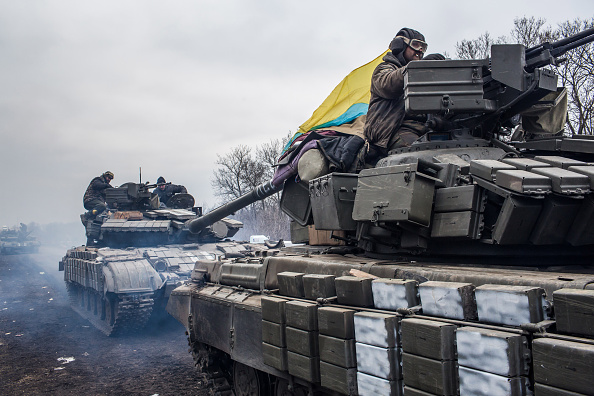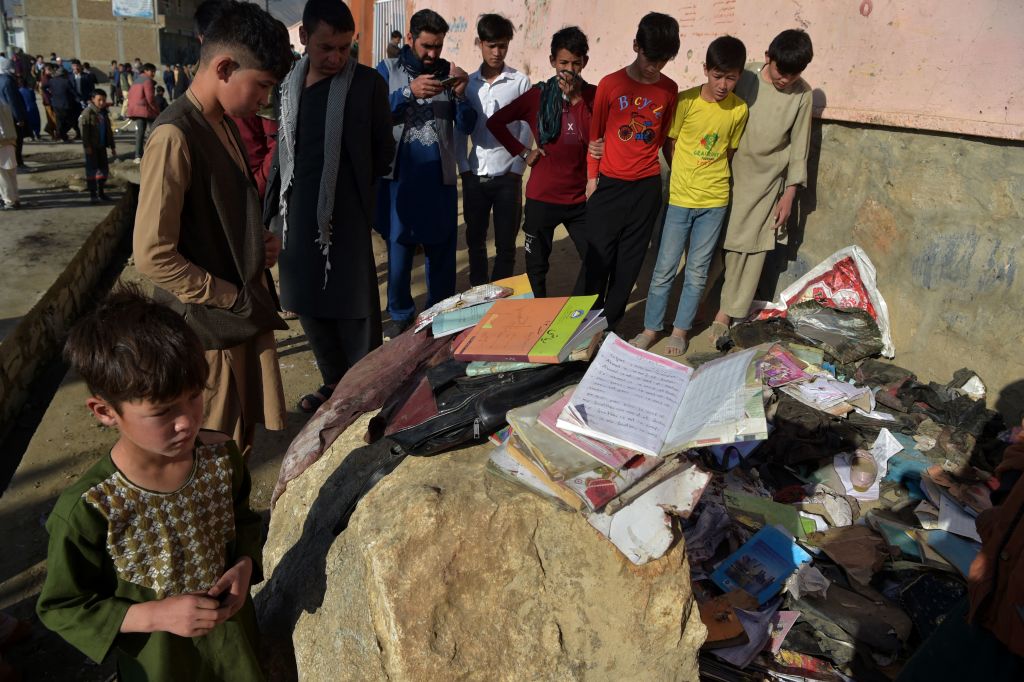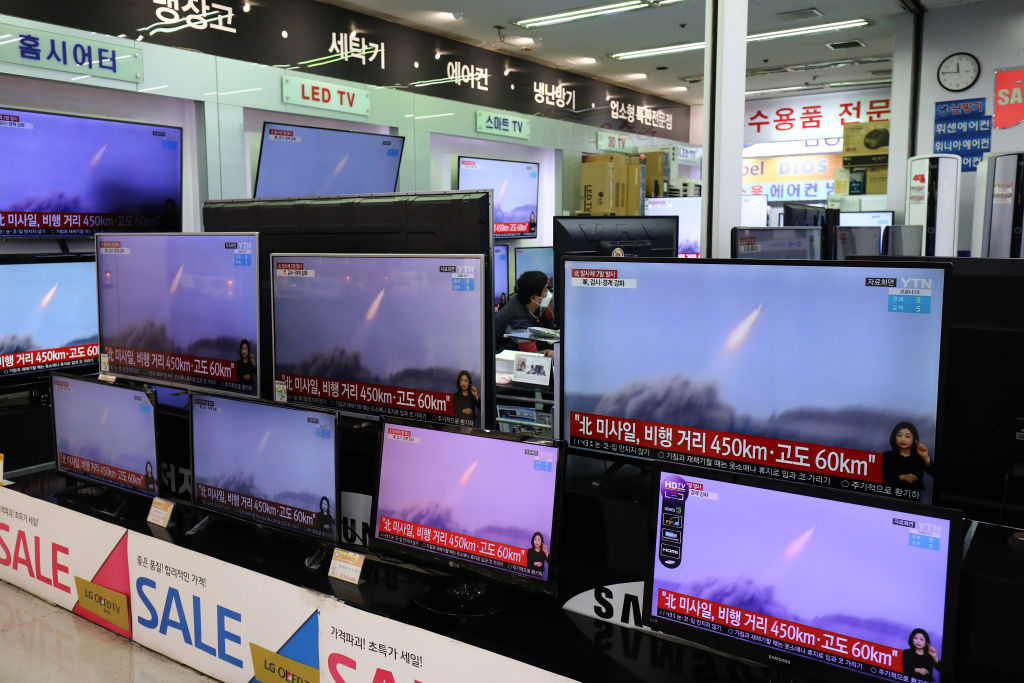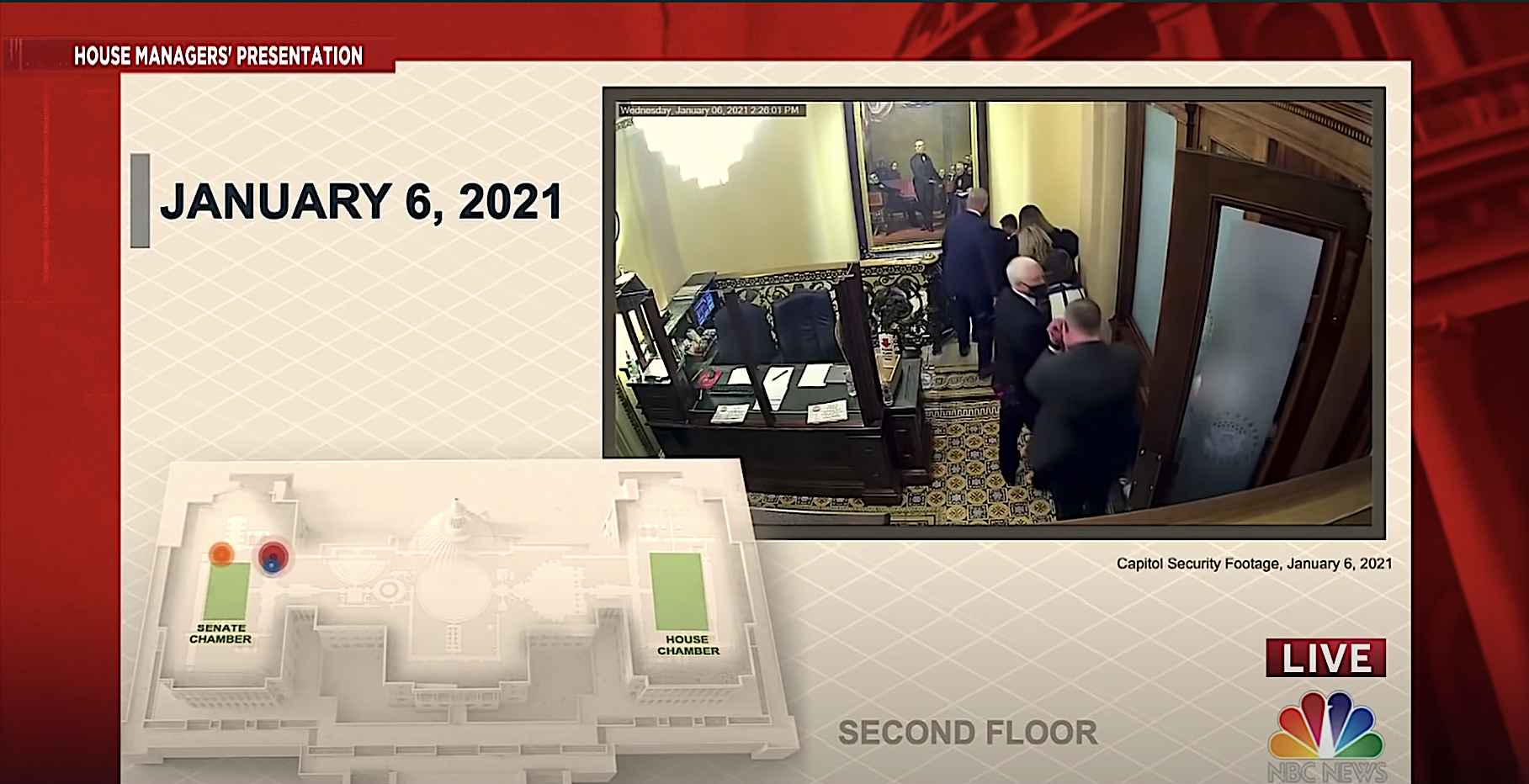The U.S. arming Ukraine would be a horrible mistake
The delusions of our foreign policy class are not worth saving


A free daily email with the biggest news stories of the day – and the best features from TheWeek.com
You are now subscribed
Your newsletter sign-up was successful
Earlier this month, the Obama administration suddenly signaled an openness to arming Ukraine as it confronts a practical civil war in its eastern half. By Monday, President Obama seemed to be walking that proposal back, returning to his senses.
This is good news. The case for arming Ukraine isn't just weak, it is macabre nonsense.
The Brookings Institution, the Atlantic Council, and the Chicago Council on Global Affairs authored a joint paper urging the U.S. to give weapons to Ukraine and to approach NATO about military assistance.
The Week
Escape your echo chamber. Get the facts behind the news, plus analysis from multiple perspectives.

Sign up for The Week's Free Newsletters
From our morning news briefing to a weekly Good News Newsletter, get the best of The Week delivered directly to your inbox.
From our morning news briefing to a weekly Good News Newsletter, get the best of The Week delivered directly to your inbox.
The very title of the report is a kind of joke: "Preserving Ukraine's Independence, Resisting Russian Aggression." It has long been apparent that Ukraine as we knew it is gone. When Kiev failed to break decisively toward Europe at the outset of the crisis, U.S. and European support flooded to pro-Europe demonstrators. Russia made its moves into Crimea, and helped mobilize Russian-speaking peoples in eastern Ukraine.
The authors of the report go on to write:
History makes clear that the only way to stop such aggression from precipitating a regional or even worldwide conflagration is to deter and defend against it as early as possible and not to be fooled by protestations of innocent motives or lack of further ambitions.
So according to these mandarins, Ukraine either gets $3 billion and a veritable blank check of NATO assistance or we may face "a worldwide conflagration." Geez. If "worldwide conflagration" was really on the table, why not $3 trillion in aid, a few ICBMs, and bold immediate nuclear interdiction across all Russian weapons sites? These aren't on the table because "worldwide conflagration" is just the latest rhetorical "mushroom cloud" used to silence tough questions about a dubious strategy.
Of course, "history" offers no such lessons. It was precisely the awful, cold-blooded calculation to let East Germany and other nations fall that prevented a worldwide conflagration during the Cold War. The Red Army massacred 50,000 in Hungary in 1956. The U.S. did nothing to respond. No worldwide conflagration.
A free daily email with the biggest news stories of the day – and the best features from TheWeek.com
The usual hawks have added their own bluster to the debate. Sen. Ted Cruz says, "We need to come together and provide defensive arms so that [Ukraine] can stand up against this Russian aggression." Notably, Cruz added, "We have a treaty obligation to stand with them." That isn't remotely true. No such treaty exists.
Sen. John McCain supports action, naturally: "The United States must act with urgency to provide defensive lethal assistance to Ukraine." "Defensive lethal assistance" is possibly the most ungainly euphemism in an age of ugly self-delusions.
But at the recent Munich security conference, Sen. Lindsey Graham offered perhaps the most pathetic rationale for arming Ukraine.
"I don't know how this will end if you give [Ukraine] defensive capability, but I know this: I will feel better because when my nation was needed to stand up to the garbage and to stand by freedom I stood by freedom... They [The Ukrainians] may die, they may lose, but I'll tell you what…if somebody doesn't push back better we're all gonna lose."
There's a strong foreign policy message for you. Arm Ukraine because Lindsey Graham will at least feel better if Ukrainian fighters are deluded by the Americans before their foreordained deaths at the hands of Russia. That's Graham's brave stand for freedom.
Casey Michel of The New Republic, meanwhile, disavows any positive strategic goal.
The point of increasing arms to Ukraine is not, as Bloomberg's editorial board claimed, to simply "escalat[e] a fight that it's almost certain to lose." Nor is the aim to deter any form of immediate Russian retreat. The point, rather, is to inflict more casualties than the Russian government is willing to stomach. [The New Republic]
Just more stacks of dead Russians, but now with the connivance of a historic nuclear rival. That will get the Russians to calm down.
Michel is convinced that Russia — which is enduring terrible sanctions, a crumbling economy from the collapse of energy prices, and worldwide opprobrium — will suddenly decide to cuts its losses, turn tail, and just hand Ukraine and its Russian-speaking bloc to NATO. This is a delusion.
German Chancellor Angela Merkel is against any plan that would involve arming Ukraine. In a press conference on Monday, she reiterated her position: "I've always said I don't see a military solution to this conflict." Some Americans may dismiss Merkel as compromised, given her nation's reliance on Russian energy. But that didn't stop her from supporting sanctions.
It should also be a warning to the U.S. that we would not be able to instantly rally NATO to action. It should tell us that Western European powers are, in fact, preparing to resign themselves to whatever Russia makes of Ukraine. And why shouldn't they?
Russia looks at Ukraine and sees vital interests, warm water ports, a bloc of Russian-speaking people, a way to export its energy resources. Vladimir Putin's actions have been a desperate gamble to avert the loss of Russia's influence there. For the West, Ukraine is a basket case, a divided nation. Its economy is wrecked. It has, according to Michel, a "rust-bucket" military, and its public institutions are hollowed out after a decade of post-revolution misgovernance. It would be a ward of NATO.
All we would be saving there is the hopes and reputations of an American foreign policy class that is indifferent to the lives of Ukrainians — they may die, after all — but cannot bear to see its dream of a NATO inclusive of Ukraine buried by the thuggish likes of Vladimir Putin.
Michael Brendan Dougherty is senior correspondent at TheWeek.com. He is the founder and editor of The Slurve, a newsletter about baseball. His work has appeared in The New York Times Magazine, ESPN Magazine, Slate and The American Conservative.
-
 Democrats push for ICE accountability
Democrats push for ICE accountabilityFeature U.S. citizens shot and violently detained by immigration agents testify at Capitol Hill hearing
-
 The price of sporting glory
The price of sporting gloryFeature The Milan-Cortina Winter Olympics kicked off this week. Will Italy regret playing host?
-
 Fulton County: A dress rehearsal for election theft?
Fulton County: A dress rehearsal for election theft?Feature Director of National Intelligence Tulsi Gabbard is Trump's de facto ‘voter fraud’ czar
-
 Bombing at girls' school in Kabul kills at least 50, including students
Bombing at girls' school in Kabul kills at least 50, including studentsSpeed Read
-
 Garland says DOJ is 'pouring its resources' into stopping domestic terrorists 'before they can attack'
Garland says DOJ is 'pouring its resources' into stopping domestic terrorists 'before they can attack'Speed Read
-
 Suspected Israeli cyberattack on Iranian nuclear site complicates U.S.-Iran nuclear deal talks
Suspected Israeli cyberattack on Iranian nuclear site complicates U.S.-Iran nuclear deal talksSpeed Read
-
 North Korea fires 2 ballistic missiles into sea
North Korea fires 2 ballistic missiles into seaSpeed Read
-
 U.S. airstrikes target Iranian-backed militia facilities in Syria
U.S. airstrikes target Iranian-backed militia facilities in SyriaSpeed Read
-
 Rochester police who killed Daniel Prude during mental health crisis won't face charges
Rochester police who killed Daniel Prude during mental health crisis won't face chargesSpeed Read
-
 Mike Pence's 'nuclear football' was also apparently at risk during the Capitol siege
Mike Pence's 'nuclear football' was also apparently at risk during the Capitol siegeSpeed Read
-
 Trump publicly attacked Pence during the Capitol riot knowing Pence was in trouble, GOP senator suggests
Trump publicly attacked Pence during the Capitol riot knowing Pence was in trouble, GOP senator suggestsSpeed Read
